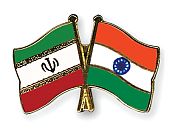 India is hesitant to implement all aspects of US and European Union sanctions against Iran, a Congressional report has said, attributing this to New Delhi's reliance on Tehran with regards to Afghanistan and the historic, cultural and economic ties between the two nations.
India is hesitant to implement all aspects of US and European Union sanctions against Iran, a Congressional report has said, attributing this to New Delhi's reliance on Tehran with regards to Afghanistan and the historic, cultural and economic ties between the two nations.
"India is implementing UN sanctions against Iran but its cultural, economic, and historic ties -- as well as its strategic need for access to Afghanistan -- have made India hesitant to adopt all aspects of US and EU sanctions on Iran," the independent and bipartisan Congressional Research Service said in its latest report on Iran.
"India first signalled greater support for sanctioning Iran in late 2012 when its central bank ceased using a Tehran-based regional body, the Asian Clearing Union, to handle transactions with Iran," said the report.
Apparently perceiving international sentiment for tightening sanctions on Iran, India has been reducing its dependence on Iranian oil, CRS said.
Since 2008, India has reduced its imports of Iranian oil by volume and as a percentage of India's total oil imports, to the point where, by the end of 2012, Iran was only supplying about 10 per cent of India's oil imports, down from over 16 per cent in 2008, it said.
"Despite requiring significant investment to switch over refineries that handle Iranian crude, Deputy Oil Minister R P N Singh told India's parliament on May 15, 2012, that India would cut Iranian imports by another 11 per cent from May 2012 until the end of India's fiscal year in March 2013," the CRS told US lawmakers on its latest report on Iran.
"The Obama Administration welcomed the pledge, and India received an exemption from P L 112-81 sanctions on June 11, 2012. Indian refiners have cut buys from Iran largely in line with the government's requests, although some months might show fluctuations as batches of oil shipments arrive. India's exemption was renewed on December 7, 2012," it noted.
The CRS said India appears to be distancing itself from participation in the Iran-Pakistan gas pipeline project.
India reportedly has been concerned about the security of the pipeline, the location at which the gas would be officially transferred to India, pricing of the gas, tariffs, and the source in Iran of the gas to be sold.
If Iran resolves its disputes with the international community, India may envision an alternative to the pipeline project as a means of tapping into Iran's vast gas resources.
"During high-level economic talks in early July 2010, Iranian and Indian officials reportedly raised the issue of constructing an underwater natural gas pipeline, which would avoid going through Pakistani territory. However, such a route would presumably be much more expensive to construct than would be an overland route," it said.
According to a table compiled by CRS, even as India has considerably reduced its import of oil from Iran from a high 320,000 barrels per day (bpd) in 2011 to 280,000 bpd in 2012, it is the second largest importer of crude oil after China, which in 2012 imported 400,000 bpd.
CRS said the international sanctions has adversely affected Iran's economy to the point where key Iran leaders are considering the need for a nuclear compromise.
"Oil exports provide about 70 percent of Iran's government revenues and Iran's oil exports declined to about 1.25 million barrels by the end of 2012 -- a dramatic decline from the 2.5 million barrels per day Iran exported during 2011.
"The cause of the drop has been a European Union embargo on purchases of Iranian crude oil that took full effect on July 1, 2012 coupled with decisions by several other Iranian oil customers to substantially reduce purchases of Iranian oil in order to comply with a provision of the FY2012 National Defence Authorisation Act (P L 112-81). To date, 20 countries have been deemed in compliance," it said.
"The loss of hard currency revenues from oil -- coupled with the cut-off of Iran from the international banking system and the decline of Iran's foreign exchange reserves -- caused a collapse in the value of Iran's currency, the rial, in early October," CRS said.
That collapse prompted street demonstrations and, in response, Iran has tried to impose currency controls and arrested some illegal currency traders.
These steps have not restored public confidence in the regime's economic management -- inflation has soared, industrial production has fallen, and some of the more expensive medicines are reported to be in short supply, it said.
The CRS said sanctions may be slowing Iran's nuclear and missile programs by hampering Iran's ability to obtain some needed technology from foreign sources.
However, Department of Defence and other assessments indicate that sanctions have not stopped Iran from developing some new weaponry with indigenous skills.
"Iran is also judged not complying with UN requirements that it halt any weapons shipments outside its borders, particularly with regard to purported Iranian weapons shipments to help the embattled Assad government in Syria.
"And, international sanctions targeting the regime's human rights abuses do not appear to have altered Iran's repression of dissent or its efforts to monitor public use of the Internet," it said.









 © 2025
© 2025